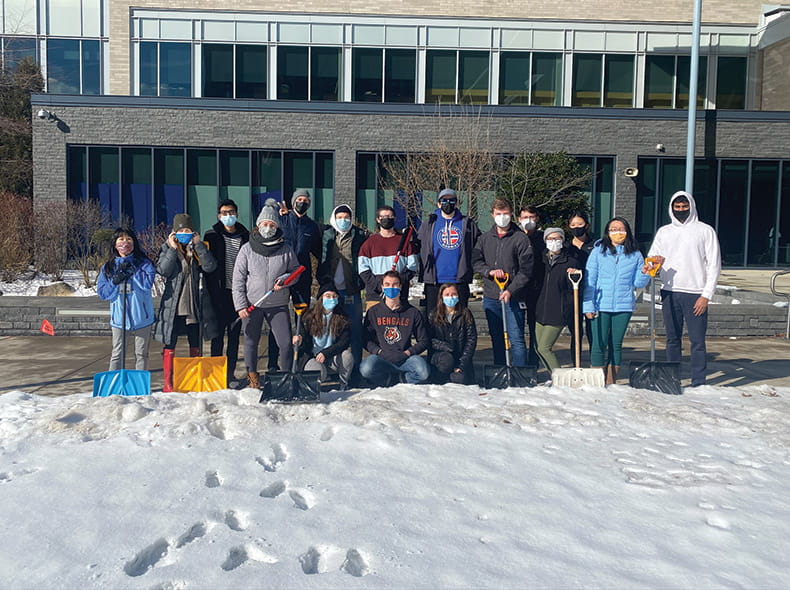
Family- and Community-Centered Experience
- The social determinants of health, helping to not only hone your communication skills and sense of empathy, but also move you to social action and change
- The impact of illness on one’s sense of self, one’s relationship with family and friends, the environment, activities and future goals and aspirations
- The impact of social factors (e.g., racism, access to education, built neighborhoods) on one’s sense of self, one’s relationship with family, friends, and society and future goals and aspirations
- The influence doctors and other perceived figures of authority have on the way people view themselves and their identities
- How beliefs and assumptions of healthcare providers and society affect a person’s identity, including gender, age, race/ethnicity, national origin, language spoken, appearance and other social statuses
- How to incorporate people’s previous experiences into a medical practice that can be characterized as family-centered and values dignity, respect, information sharing, participation and collaboration
- How to be an attentive and respectful listener and to honor a person’s story
- Respect for the volunteer family’s values and rights to privacy

Contact us
For more information on the FCCE program, contact:Geisinger Commonwealth School of Medicine
Family- and Community-Centered Experience
Medical Sciences Building
Regional Campus Office
525 Pine St.
Scranton, PA 18509
570-570-687-9707
Fax: 570-504-9636
Amanda M. Caleb, PhD
Director of Family- and Community-Centered Experience
Professor of Medical Humanities
570-687-9691
acaleb@geisinger.edu
Sharon Myers
Program Liaison, Family- and Community-Centered Experience, North Campus
570-687-9707
skmyers1@geisinger.edu
FCCE volunteers
Families who participate in FCCE are volunteers who want to help improve healthcare through the development of compassionate physicians. They benefit from sharing their stories, being heard and shaping the future of healthcare.
The process
In Rachel Remen’s words, “There is a great deal more to personal wholeness than physical health and more that medicine can offer beyond curing of illness.”
By being trained in narrative medicine and narrative humility, you can honor the stories their families share. You’ll meet with a family five times over the course of 10 months (at agreed-upon locations or via Zoom), for approximately one hour each visit.
Every visit has a focus (e.g., personal story, experiences of stigma and bias), but we encourage you to follow the narrative your family wants to share. You will participate in four verbal and two written reflection sessions during the 10-month period, which respect the privacy of the family’s story. FCCE also informs your learning experiences throughout your medical education at Geisinger Commonwealth.
The process grounds you in patient-centered and relationship-centered primary care. It prepares you to form relationships with diverse families, identify their needs and work with them to develop service learning opportunities that will address those needs effectively.
By the end of the program, you will have developed professional skills like:
- Empathic communication (including listening)
- A non-judgmental approach to discussing unique points of view
- Ethical considerations of the individual
- Systemic and critical analysis of the complex relationships between people, their families and their environmental supports; and society’s approach to health, illness and well-being
Over time, the FCCE will attempt to meet community needs and gaps in services.
